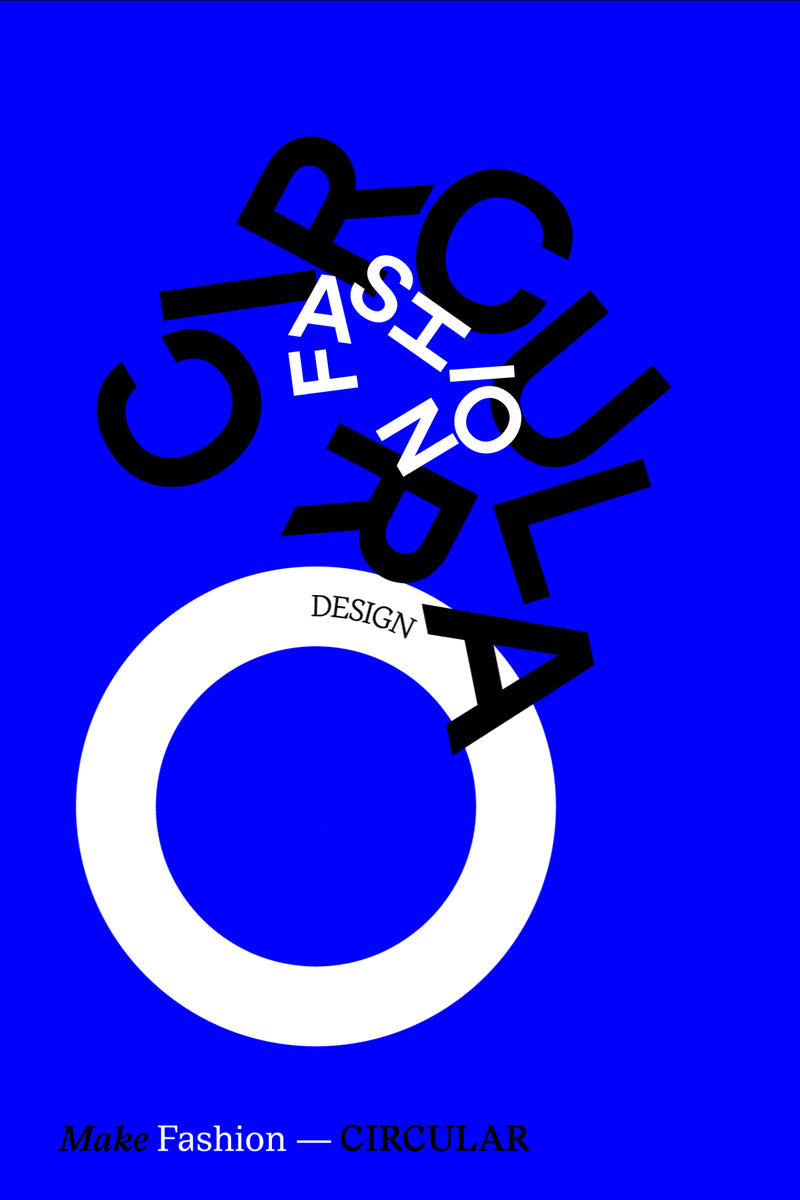Winter, 2017
—
Dörte de Jesus
—
Dörte de Jesus founded Lissome in the Spring of 2016 as an online magazine and creative agency based in Berlin, which shares wisdom and insights about a progressive and ethical approach to fashion and lifestyle. Lissome elevates the notion of sustainability in fashion with high-quality fashion photography and writing, and by sharing carefully curated, original content.
—
Dörte de Jesus
Lissome
Berlin — Germany
—
Dörte de Jesus founded Lissome in the Spring of 2016 as an online magazine and creative agency based in Berlin, which shares wisdom and insights about a progressive and ethical approach to fashion and lifestyle. Lissome elevates the notion of sustainability in fashion with high-quality fashion photography and writing, and by sharing carefully curated, original content.

“The future of fashion
is mindful.”
— Could you explain Lissome to us? And what do you hope to achieve with the platform?
“Lissome Magazine is a passion project, and what started as a one person exploration in spring 2016, has slowly and organically grown into a self-funded, independent publication, created by a dedicated all-women team of volunteers here in Berlin, as well as a wider, international community of writers, photographers, and stylists.
At Lissome, we like to look at the big questions of our times through the lens of creativity and beauty. We bring together stories and visions of designers, artists, and change-leaders across disciplines to inspire and initiate new mindful ways of living and being.”
“Lissome Magazine is a passion project, and what started as a one person exploration in spring 2016, has slowly and organically grown into a self-funded, independent publication, created by a dedicated all-women team of volunteers here in Berlin, as well as a wider, international community of writers, photographers, and stylists.
At Lissome, we like to look at the big questions of our times through the lens of creativity and beauty. We bring together stories and visions of designers, artists, and change-leaders across disciplines to inspire and initiate new mindful ways of living and being.”
— You coined the term “The future of fashion is mindful”. Could you tell us a little more about what this means to you?
“I believe that the awareness of our deep interconnectedness with Nature is what guides us at Lissome, as well as the joy and beauty of creation. I believe that being and becoming aware of ourselves and, as a consequence, of the entire, interconnected web of life that we are part of, will lead us to make choices that positively impact the world. To me, thoughtful aesthetics and design (that is equally functional, responsible, and beautiful) play an important part in this process as they can teach us about paying attention, creating with compassion, joy and intent, and cultivating skillfulness over time.”
“I believe that the awareness of our deep interconnectedness with Nature is what guides us at Lissome, as well as the joy and beauty of creation. I believe that being and becoming aware of ourselves and, as a consequence, of the entire, interconnected web of life that we are part of, will lead us to make choices that positively impact the world. To me, thoughtful aesthetics and design (that is equally functional, responsible, and beautiful) play an important part in this process as they can teach us about paying attention, creating with compassion, joy and intent, and cultivating skillfulness over time.”
“We’ve opened up a space for exploring the burning questions of our future in a way that is creative, sincere, and hopeful.”
— The fashion industry was reported in 2015 to be the second most polluting after oil. Which aspects of the industry have the biggest negative impact on the environment?
“The creation of clothing (as well as of any other consumer goods) is resource and energy intensive and you have to look at the entire lifecycle of a garment to assess its impact. It starts with the materials and their origin and making, and continues with the different manufacturing processes. Distribution and supply chain logistics also play a part and so does the use and eventual disposal of clothing. Among the key factors are the wastage of water and (non-renewable) energy, the usage of chemicals and toxins, the degeneration of soil through extensive mono cropping, and the heavy carbon footprint of global supply chains.
Overall I would say that fast fashion as a business model has the most destructive impact on the environment. It is built on selling huge amounts of clothing for cheap. To keep prices low and profits soaring, fast fashion is often produced in countries with few environmental regulations. Its production exploits essential and limited natural resources, and at the same time, it is poorly made in order to be disposed of quickly. It’s a real threat to our species and yet we are still hooked.”
— You’ve chosen not to focus on ‘sustainability’. What caused you to avoid using this word?
“I think the word sustainability doesn’t seem ambitious or extensive enough. To me, it sounds too much like preserving the status quo. I think, the destruction of our environment has already gone incredibly far, and is continuing on a daily basis, fuelled by us maintaining the status quo. What we now need is the regeneration of our natural world which calls for a rethinking of the way we live in the capitalist West, and do business on a global scale.”
“The creation of clothing (as well as of any other consumer goods) is resource and energy intensive and you have to look at the entire lifecycle of a garment to assess its impact. It starts with the materials and their origin and making, and continues with the different manufacturing processes. Distribution and supply chain logistics also play a part and so does the use and eventual disposal of clothing. Among the key factors are the wastage of water and (non-renewable) energy, the usage of chemicals and toxins, the degeneration of soil through extensive mono cropping, and the heavy carbon footprint of global supply chains.
Overall I would say that fast fashion as a business model has the most destructive impact on the environment. It is built on selling huge amounts of clothing for cheap. To keep prices low and profits soaring, fast fashion is often produced in countries with few environmental regulations. Its production exploits essential and limited natural resources, and at the same time, it is poorly made in order to be disposed of quickly. It’s a real threat to our species and yet we are still hooked.”
— You’ve chosen not to focus on ‘sustainability’. What caused you to avoid using this word?
“I think the word sustainability doesn’t seem ambitious or extensive enough. To me, it sounds too much like preserving the status quo. I think, the destruction of our environment has already gone incredibly far, and is continuing on a daily basis, fuelled by us maintaining the status quo. What we now need is the regeneration of our natural world which calls for a rethinking of the way we live in the capitalist West, and do business on a global scale.”
— What other decisive moments led you to create Lissome?
There was not one decisive moment, it was more like a slow process of realisation for me. After I had been working as a communication designer and art director in the fashion and lifestyle industry for almost a decade, I somehow had lost a sense of higher purpose in my life. I felt that I was contributing to the ethical and environmental problems that our world is facing, rather than helping to solve them. You could say that my soul was in despair and I decided to listen to my inner voice instead of growing cynical and jaded.
Ever since I was a young age, there was a strong sense of responsibility and earnestness that was guiding me. At the same time, there was also a curiosity and love for everything artistic, poetic and playful. In today’s gloomy political climate, Lissome opens up a space for exploring the burning questions of our future in a way that is creative, sincere, and hopeful.”
— What are the most significant jigsaw pieces currently missing, which could help the fashion industry restructure their processes in a healthier way?
“In the current fashion debates, there is one topic that everyone seems to agree on: the importance to move from today’s linear system of “take, make, dispose” to a circular economy. And I couldn’t agree more - fashion items are produced from precious, finite resources, they take a toll on the land, and water is becoming increasingly scarce, whilst at the same time, the world’s population is growing rapidly. We can’t continue using up valuable resources in order to produce inferior products that quickly turn into harmful waste.
In order to create a circular fashion system, we need to design materials, products and processes with sustainability and the product life-cycle in mind, and build a new circular infrastructure that generates additional user cycles through repair and resale services and enables recycling to prevent waste.
Nonetheless, overproduction and overconsumption remain the elephant in the room. I think that the 'Anti-Fashion Manifesto' that fashion trend-forecaster Li Edelkoort published in 2015 was an important wake-up call for the industry. There is a danger that fashion, that becomes no more than a disposable product, loses its cultural relevance and its humanism.”
In order to create a circular fashion system, we need to design materials, products and processes with sustainability and the product life-cycle in mind, and build a new circular infrastructure that generates additional user cycles through repair and resale services and enables recycling to prevent waste.
Nonetheless, overproduction and overconsumption remain the elephant in the room. I think that the 'Anti-Fashion Manifesto' that fashion trend-forecaster Li Edelkoort published in 2015 was an important wake-up call for the industry. There is a danger that fashion, that becomes no more than a disposable product, loses its cultural relevance and its humanism.”

— Which comes first: Changing how consumers think? Or changing how designers design?
“I would go a step further. I believe that in order to change our current fashion system, we need to rethink our economic system at large, and the values that it’s based on. We need a fair and healthy global system that first and foremost serves a radically new goal: meeting the needs of all within the means of the planet. I would like to recommend reading “Doughnut Economics: Seven ways to think like a 21st-century economist”. Recently published in 2017 by British economist Kate Raworth, it is an inspiring analysis of how we need to widen our concept of economic development and invest in the human, the natural and the social wealth that sustains us.”